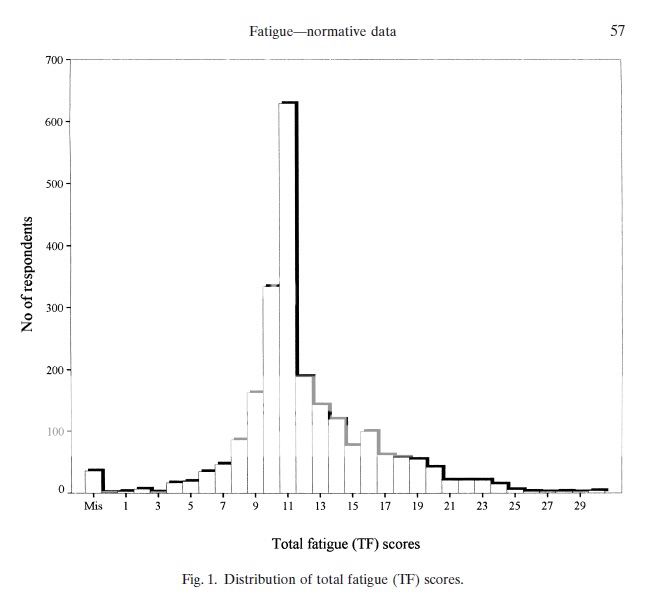Yes, you're right not to be convinced Dolphin. I said it as a casual observation of the literature that I've read.
It's just that whilst dealing with the PACE Trial literature, and other information regarding the Chalder scale, I've never come across a suggestion that a score of 11 would be full health, except in this discussion thread, and I can't remember if anyone had found any official or peer reviewed information about the subject? It's very possible that I've missed something vital that you are aware of?
As far as I'm aware, the PACE Trial interprets a decreased score on the fatigue scale as success for the trial, no matter what the score is, at least statistically speaking. When we are analysing the data, then any drop in an individual participant's score would contribute to the overall drop in the average score.
If researchers use a score of 11 as a perfect health, then the scale becomes extremely unintuitive, and I question how helpful it would be, in terms of statistical analysis etc.
ETA: I've just read your comments re Norway, and other helpful comments. But I'd like to see some other relevant data before I am convinced that the authors and editors of the PACE Trial have any insight into any special significance of a score of '11'.
A lot of the earlier work was done using the bimodal score. In this scale, scores of 0 and 1 are not differentiated. On this scale, a score of 4 or more was considered to show "fatigue caseness". This was validated by comparing the results with another scale as I recall.
None of the PACE Trial analysis is based on a scale of 22 (11 to 33.)
Did any of them explicitly say 0 to 33 i.e. have you specific points in mind?
However, I am coming around to your position a little: It does bring up the point that if somebody were to score less than 11 (as happened with the MS trial
http://www.psychosomaticmedicine.org/content/70/2/205.full.pdf+html), this would artificially (in my opinion) bring down the average.
And thinking about it, although scores of less than 11 are probably still going to be unusual overall in a CFS trial, there are probably going to be people who, for whatever reason, tick "less than usual" (0) for the odd question.
Given the data from the MS study
http://www.psychosomaticmedicine.org/content/70/2/205.full.pdf+html, it makes me wonder whether a score of 15 (say) from somebody in the general population and a score of 15 from somebody who has done a trial might not necessarily represent the same score: somebody who did CBT (or GET) (say) might more likely to tick some 0 boxes (even if it explicitly said answer it compared to before you became ill), while a healthy person might simply say they had the symptom "no more than usual" scoring 1 for the same question even though the level of impairment (or lack of it), might be the same.
This would mean referring to population norms using the scale would not be appropriate* (if it occurred).
However, overall I think saying the scale is 0 to 33 [and ignoring the fact that if somebody said they were said "no more than usual" (where usual is before they became ill) for the 11 questions they would score 11] is a vulnerable position that could be criticised, especially given the Norwegian data.
But this conversation has got me to think a bit more about the issue.
* I already think that there may also problems with the SF-36 physical functioning questionnaire when comparing scores from people with ME/CFS with healthy people. Some people with ME/CFS might say "they have no problem" walking half a mile/a few blocks/0.5km** or whatever - because they can do it once a day or whatever (and this would lead to a score 10 points out of 10 on that item). But this may be the main activity that they do - lots may not be working at the same time. This comes up with disability assessments where somebody can walk 100m once so it is put down that they have no difficulty doing it - but they couldn't do it if they had to do it dozens of times in the course of their working day.
** The SF36 actually varies on this question from countries that use yards/miles, blocks (US) and kilometres (most countries I think).


